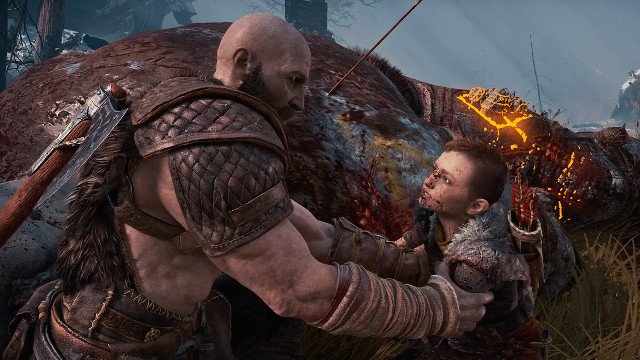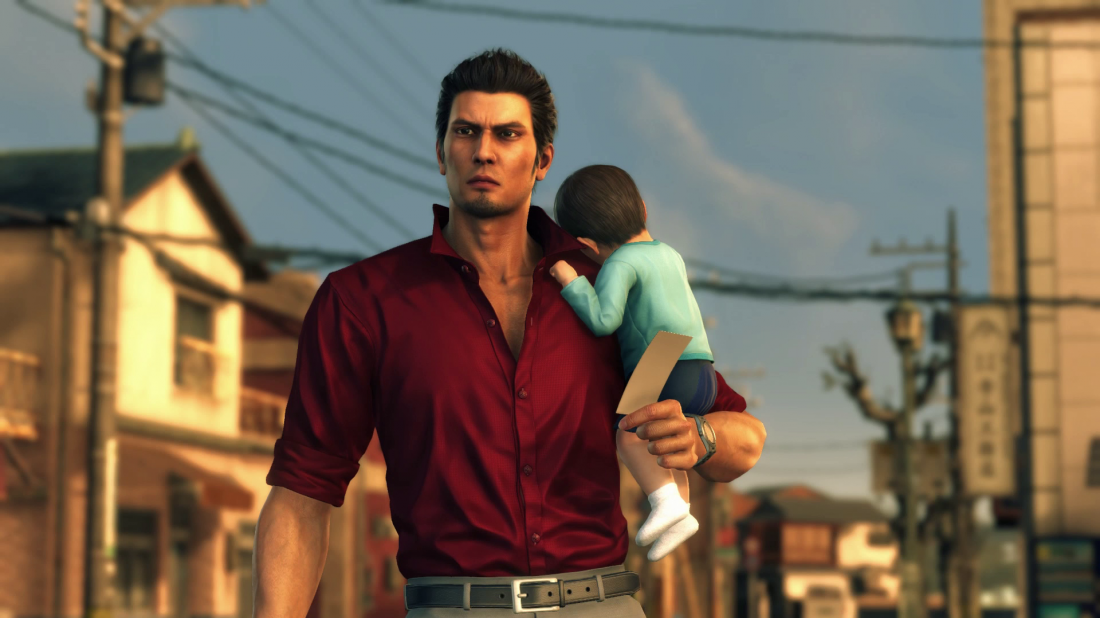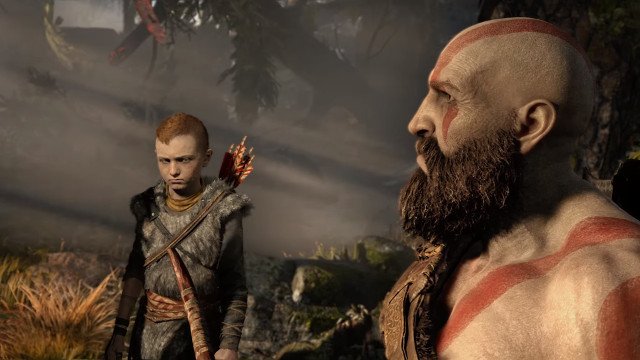It’s nothing new for video game characters to be fathers, but this month was a strong demonstration that narratives in games are maturing. Two of April’s biggest releases, Yakuza 6 and God of War, both revolve around themes of fatherhood and wind up exploring the potential damage that bad parenting can inflict on a child. Rather than showing a wholly romanticized view of parenthood, they opt to show a reflection of the complicated realities of the matter. For this, both titles have wound up resonating with players in a major way.
In Yakuza 6, series protagonist Kazuma Kiryu unexpectedly finds himself in the role of a grandfather after finding out his adopted daughter had a child, before going out on a journey to find out who the father is. There’s plenty of lighter scenes to balance the high drama (such as having to console the crying child by rocking the DualShock 4 controller), but it largely serves to tell a story about the sacrifices one must make in order to lead by example.
God of War doesn’t quite go into the intricacies of raising a child (as Kratos is painted as a distant father for the most part), but it does a brilliant job in a few specific aspects. In particular, its portrayal of seeing one’s worst qualities in their child, and how terrifying that must be as a parent, is top-notch. Kratos is a man that has largely been defined by his rage, and whenever his son Atreus gives into his more violent tendencies, you can see his disappointment. It’s less of being let down by his son, but rather knowing that his son might go down the same painful path he has experienced. He does his best to circumvent this, but ultimately a parent can only do so much.

After all, every child has their own free will, and their life will ultimately be decided by them no matter what a parent does. God of War shows the negative side of this, as Freya’s overprotectiveness of Baldur leads him to become resentful and embrace heartless tendencies. If he can’t feel, why should others enjoy happiness or even pain? It’s a flawed philosophy, but humans have killed for much less in real life.
Conversely, Yakuza 6 shows that having terrible parents doesn’t doom you to following in their footsteps. While Kiryu is the protagonist of the game, the story ultimately revolves around Yuta Usami, whose mysterious past brings up a lot of baggage. From Yuta’s own conception as a “backup plan” and subsequent abandonment to his father trying to kill his only grandson due to being mixed race, Yuta is dealing with a lot of turbulent revelations in a short amount of time. While he contemplates committing suicide at one point, he eventually decides that he needs to be the father he never had. His resolve is tested, but he ultimately becomes a better person due to his trauma.
Yakuza 6 also winds up brilliantly portraying the complicated issue of the importance of being related by blood. While Kiryu is only a father in an adopted sense (he’s clearly too busy participating in online webcam chats between prison stints to have a kid of his own), his relationship with his daughter Haruka and other characters are proven to be just as real (if not more so) than many blood relationships. Throughout the series, Kazuma may not have always been able to be physically there for the orphans he took in, but he was always supporting them and showing that he cared. It showcases an important lesson: to be a father one must raise and support a child, not merely participate in their conception. The former is a lengthy, difficult process, while the latter is the result of a few minutes of passion.

The themes of fatherhood and parenting failures aren’t just seen in the main story, though, as it’s seen repeatedly in Yakuza 6’s side missions. One notable one involves the fan-favorite character, Pocket Circuit Fighter, who is now three decades older than the lovable loser he was in Yakuza 0. While it’s shocking enough that Fighter is revealed to have a son and a wife, the scene quickly becomes sad as it’s shown that the son barely knows his father. This is largely due to Fighter (and his wife) not wanting his son to be like himself, who he views as a loser and failure.
Kiryu is able to help save both Pocket Circuit Fighter’s loveless marriage and his bond with his son by having him embrace the passion that made him get along with kids long ago, but if the player chooses not to intervene, all three characters are bound to live out their lives in a tragic way. A son not knowing their father’s true personality, the father terrified to be a negative influence on his son, and a wife that isn’t sure how to make sure her family a success. It’s one of the most poignant examples of struggling parents, as it’s not a crime boss that is having trouble connecting with his own blood, but rather a portrayal of a good person that is just overcome by the complications of fatherhood. It’s not an easy role to fill, and it shows why so many parents, both in real life and in fiction, ultimately fail in their attempts to be there for their children.
While I’m not a parent, many of the issues that the games touched upon wound up really hitting home as a son. My father, a heroin addict, was never in my life, and I often feared that I’d end up having the same fate as him. The parental figures that were in my life weren’t much better, but ultimately, I learned that while parenting does play a huge role in someone’s life, every individual has their own agency. Unlike Norse mythology, our paths aren’t predestined and planned out.
It’s great to see two of 2018’s biggest releases dealing with complicated subjects with tact, but there’s still definitely room for improvement. For example, it’s disappointing how little each of the aforementioned games explores motherhood in comparison. Both God of War and Yakuza 6 attempt touch on this with the characters of Freya and Kiyomi, respectively, but neither of their arcs are truly fleshed out compared to the multiple examples of fathers within each game. Instead, we mainly get a male viewpoint on parenthood and the many issues that arise from it. That’s fine, but it’s also a clear reflection of gaming’s own diversity problem. This type of representation will only improve over time, and this is certainly a step in the right direction, especially as far as AAA gaming is concerned. That’s undeniably worth celebrating.







